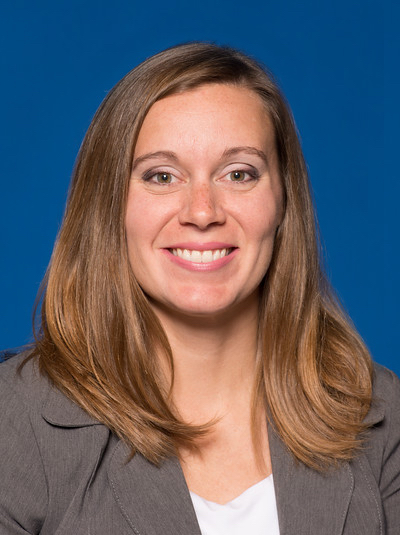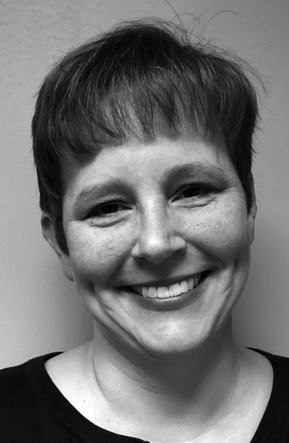The Research and Creation of a Self-Guided, Online Ethics Training for College Journalists
By Amanda C. Bright and Catherine E. Jewell
Eastern Illinois University
Recent political and social events have brought into sharp focus the issue of ethical behavior in the practice of journalism, thus creating a critical need for providing student media members with a solid ethical grounding. The pervasive issue of fake news has created a sense of urgency in the pedagogy of ethical standards, as well. Tim Gallagher highlighted a gap in journalistic understanding in his article, Living Up to Our Standards, stating:

The public does not understand how reporters and editors sift through potential stories, make decisions about what to cover (with disinterest for the partisan viewpoints), and then begin the process of accumulating information, discarding some of it, challenging “proof” that sources offer, and finally choosing the words that will tell the story. The public knows nothing of the editing process. Fake news has none of this. (Gallagher 2017, 22)
Students new to university newsrooms come often with this “public” understanding of journalism. Hence, the bulk of real journalistic training begins in university programs. Students, however, often begin publishing work through student media soon after starting college, when ethics courses may not have been taken yet.
These were all truths about our journalism program and student media at Eastern Illinois University where we serve as faculty and staff. Therefore, we set out to develop an online, self-guided training program to create an ethics starting point for students — in the nascent moments of their campus media contributions. Time and resources, both human and financial, are limited in our journalism program, so we researched, created, and implemented a training specific to our context and easily updated. Using a systematic approach to instructional design, we conducted a needs analysis to craft the self-guided ethics training, and provided EIU with a timely, low-cost method to introduce journalistic ethics in six key areas: professional standards, conflict of interest, copyright, diversity and bias, obscenity, and fact checking.
Retracing Our Research Process
Student media advisers often say there is too much to cover in too short a time. Robert Nulph of Missouri Western State, associate professor of convergent journalism and Griffon Update TV adviser, says this was a major issue with the ubiquitous boot camp style of training. “Primarily it’s such a condensed time, I had to jam as much as possible into it,” (Ascarelli, Huckins, and Collopy 2013). Indeed, sound ethics is only one component of many to cover. Because every program has its own challenges, we believed our ethics training could not be a one-size-fits-all model. Therefore, we needed to understand the strengths and weaknesses of our specific program to create training suitable for our environment.
Four groups of participants were used for our anecdotal research: the head of the journalism department; the interim director of student publications, who serves as the editorial adviser for the daily newspaper; two student media editors; and students in a basic news writing course. Our research revolved around this question: What ethical issues do you believe need to be more fully understood in student media? The editors of both publications indicated fact checking and coverage of a diverse student body as primary issues. The newspaper adviser spoke about obscenity in the college setting. All three expressed a need for introductory ethics training for new staff members but had concerns about time constraints. The department head wanted a focus on ethical principles and norms. Obscenity, copyright, fact checking, and conflict of interest were also mentioned, as was sensitivity to what she called “the -isms,” such as racism, sexism, etc.
We used a Typeform survey as an anonymous, web-based tool to elicit responses from a group of 16 students who were enrolled in a beginning news writing course. From this data, we found the majority did not have much training or felt they needed more. Respondents’ short answers about what they needed to understand revolved largely around areas of perceived sensitivity regarding gender, sexual orientation, and politics, and anonymous sourcing and source credibility.
Creation of the Online, Self-Guided Ethics Training
We broke the training up into the six areas that were most prevalent from our needs analysis, with information, scenarios, and then questions with logic jumps, so students could gain feedback and formatively assess themselves. Typeform was a good fit because of its design and navigational options. The training started with a welcome screen, specific to EIU, that introduced the training’s purpose and benefits, and from there, students were able to click through each of the six modules at their own pace.
For each module, a summary of the area was presented followed by a secondary source of information for more on that topic. These deeper dives were linked sources, embedded videos, and the like. After two to three screens of information, student media staff members encountered two scenarios that dealt with the topic – typically from actual college publications. They were asked to answer questions regarding the ethics of the situation, and were then provided immediate feedback about their choice.
At the end of the training, a summative assessment had elements of all six areas addressed in a long-form, open-ended response. The summative assessment included a hypothetical scenario between a reporter and editor. An embedded video showed the first part of a conversation and then asked those taking the training to respond, while applying what they learned from the six previous modules. The student media staff member earned a certificate at the end. The student media editor then saw the results, including the long-form answer, and initiated discussions either for the whole staff or for individual staff members to address any knowledge gaps, including the adviser as needed.
Conclusions, Implementation, and Limitations
According to Bob Bergland, adviser of The Griffon News and professor at Missouri Western State University:
It’s a somewhat obvious point, but important: journalism professionals, teachers of journalism students and high school and college journalists need to be ever more vigilant about being ethical in the work they do, to counter the “anything goes” mentality that has flourished in the age of the Internet. (Wilson 2016)
This notion is valid: all participants in our study and those who took the training agreed there was an acute need for greater ethics instruction and practice. Although we recognize that buy-in from both the editors and the staff is necessary for this self-guided, online ethics training to work – acknowledging the training is far from foolproof – we believe, as well as our student editors and advisers, that it provides another touch point for awareness and conversations in a time when the ethical waters appear murky. The hope is that implementing ethics education through emerging media can bring an inexpensive and flexible tool to the all-important conversation about college media ethics so that those discussions are welcomed and encouraged rather than overlooked.
REFERENCES
- Ascarelli, Miriam, Kyle Huckins, and Trisha Collopy. 2013. “Training Helps Overcome Beginning-of-Semester Hump.” College Media Review. Accessed August 15, 2017, https://cmreview.org/training-helps-overcome-beginning-of-semester-hump/.
- Gallagher, Tim. 2017. “Living Up to Our Standards.” Editor and Publisher 150(3): 22-3.
- Wilson, Bradley. 2016. “Ethics Conference Honors Walter Cronkite, ‘The Most Trusted Man in America.’” College Media Review, https://cmreview.org/research-vol-52-digital-ethics-in-an-age-of-instantaneous-publication/.
 Amanda C. Bright is a former professional journalist who later spent a decade as a scholastic newspaper and yearbook journalism adviser. Currently, Bright is a journalism instructor and adviser at Eastern Illinois University, the Education Editor for MediaShift, and a PhD candidate in Curriculum, Instruction, and Media Technology, as well as the Media Content Coordinator for Online, at Indiana State University; she also serves as the Social Media Director and Web Co-Administrator for the Illinois Journalism Education Association.
Amanda C. Bright is a former professional journalist who later spent a decade as a scholastic newspaper and yearbook journalism adviser. Currently, Bright is a journalism instructor and adviser at Eastern Illinois University, the Education Editor for MediaShift, and a PhD candidate in Curriculum, Instruction, and Media Technology, as well as the Media Content Coordinator for Online, at Indiana State University; she also serves as the Social Media Director and Web Co-Administrator for the Illinois Journalism Education Association.
 Catherine E. Jewell is the General Manager of the Student Publications department of Eastern Illinois University. She also serves as an adjunct instructor of journalism at Eastern Illinois University. Jewell is currently a PhD candidate in Curriculum, Instruction, and Media Technology at Indiana State University with a research focus on gender issues in education.
Catherine E. Jewell is the General Manager of the Student Publications department of Eastern Illinois University. She also serves as an adjunct instructor of journalism at Eastern Illinois University. Jewell is currently a PhD candidate in Curriculum, Instruction, and Media Technology at Indiana State University with a research focus on gender issues in education.
